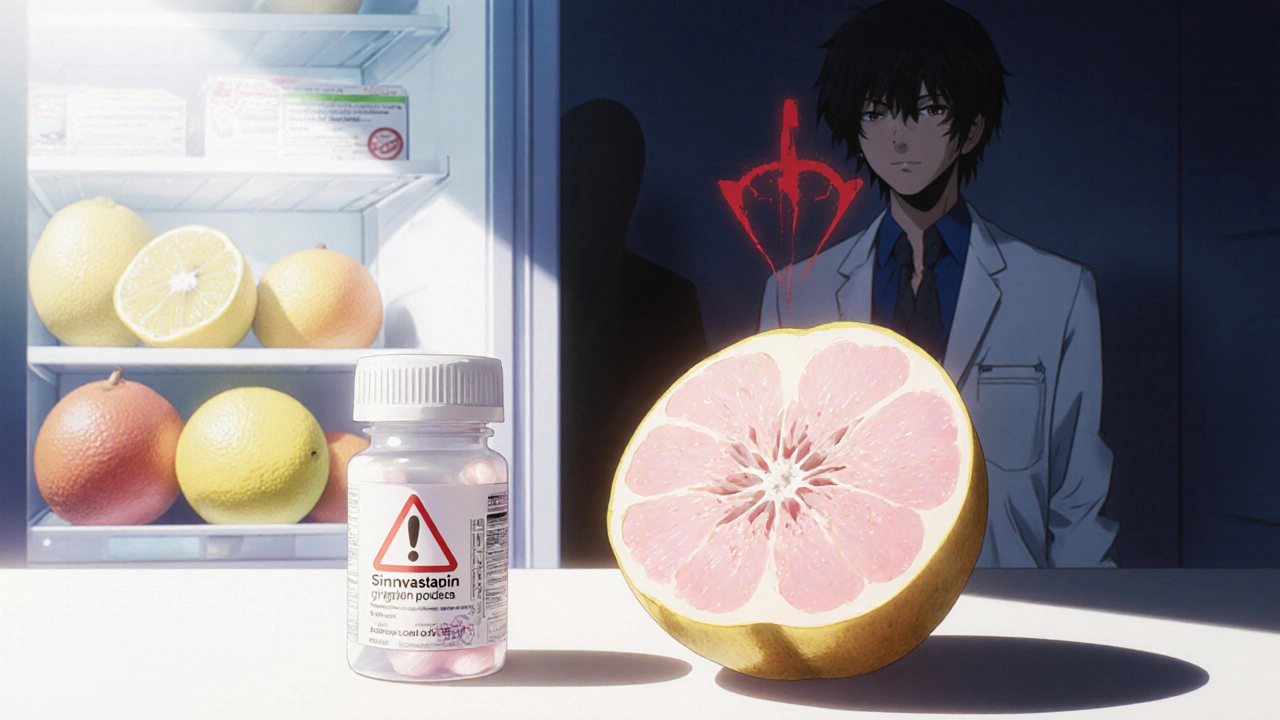Furanocoumarins and Drugs: How Natural Compounds Affect Medication Safety
When you take a pill, your body doesn’t just absorb it—it furanocoumarins, natural compounds found in certain fruits and plants that interfere with drug metabolism. Also known as furocoumarins, these substances can turn a safe dose into a dangerous one by blocking the enzymes that break down medications. This isn’t theoretical—it’s why millions of people are told to avoid grapefruit while on statins, blood pressure pills, or anti-anxiety drugs.
The real problem lies in CYP3A4, a key liver enzyme responsible for metabolizing over half of all prescription drugs. Furanocoumarins disable CYP3A4, causing drugs to build up in your bloodstream. One glass of grapefruit juice can keep this effect going for days. That’s why even a single dose of a drug like simvastatin can spike to dangerous levels after grapefruit exposure. It’s not just grapefruit, either—Seville oranges, pomelos, and even some herbal teas contain these compounds. People on blood thinners, immunosuppressants, or heart rhythm meds are especially at risk. And here’s the catch: you won’t feel anything until it’s too late. No warning signs, no immediate reaction—just a slow, silent overload.
That’s why the posts below dive into the real-world fallout of these interactions. You’ll find stories about people who ended up in the ER after combining their meds with what they thought was a healthy smoothie. You’ll see how drug metabolism, the process by which the body breaks down medications using enzymes like CYP450 gets hijacked by everyday foods. You’ll learn which common prescriptions are most vulnerable, and how to spot hidden sources of furanocoumarins beyond citrus. Some posts even connect this to broader issues like food-drug interactions, the unpredictable ways what you eat changes how your medicine works, and why even generic drugs aren’t always safe when paired with the wrong fruit. This isn’t about avoiding healthy foods—it’s about knowing which ones can turn your treatment into a hazard. Below, you’ll find practical guides, real cases, and clear rules to help you stay safe without giving up your favorite meals.
Citrus Fruits Beyond Grapefruit: Pomelo and Seville Orange Effects on Drugs
Pomelo and Seville orange can be just as dangerous as grapefruit when taken with medications like statins and immunosuppressants. Learn how these citrus fruits interfere with drug metabolism and what you need to do to stay safe.

